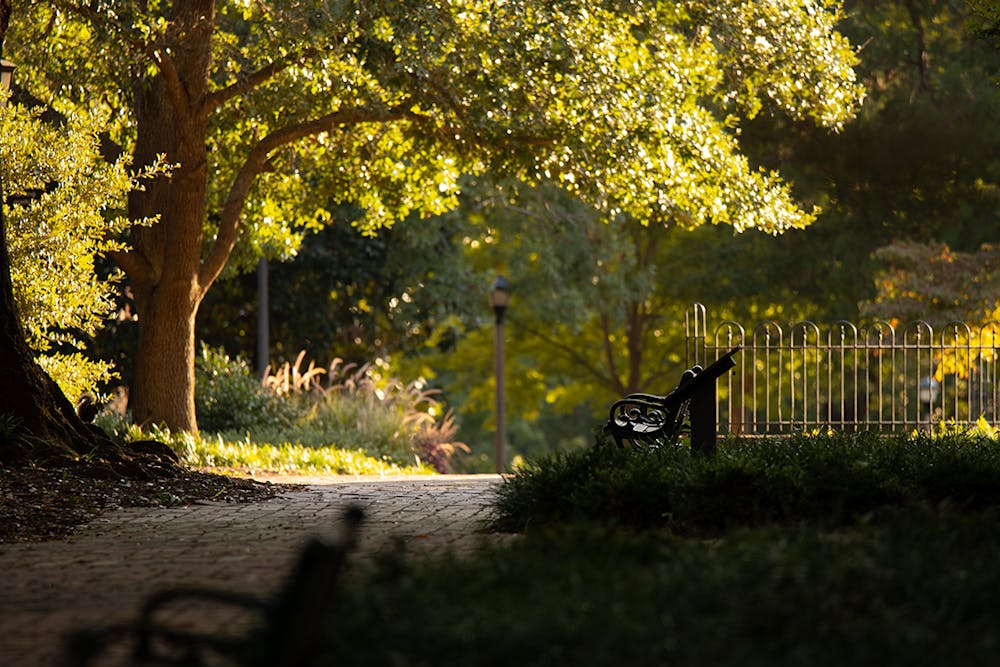Being a Black student at a predominantly white institution (PWI) can be a disheartening experience for most. While some PWIs, such as USC, pride themselves on welcoming diversity and fostering inclusion, they can fall short.
USC Columbia undergraduate demographics consist of 76.7% Caucasian students, and the remaining percentages are minorities. While Black students are more common than other minorities, with 10.2% enrolled, the disparity is noticeable.
The Carolina Creed, which is our university’s established values, "reflects a concern for all members of the university community as individuals, providing each with membership in our community and a genuine sense of inclusion," according to Dennis Pruitt, vice president of Student Affairs.
First-year political science student Labria Rhaney said she believes the Carolina Creed should be emphasized in school, but “when you have students from different backgrounds, and maybe they're from different areas that don’t really implement that type of understanding of different people from different backgrounds, there's going to be a clash.”
That clash Rhaney referred to is often an act of racism or microaggressions. She recalls being called the N-word after a white student purposefully stepped on her shoes.
"Black American college students who attend predominantly White institutions (PWI) of higher education regularly encounter subtle and explicit forms of racial discrimination on campus," The USC Scholar Commons wrote. "Racial discrimination in the form of racial microaggressions, inequitable treatment by faculty and staff, and course content that excludes knowledge produced by Black Americans all contribute to a campus climate in which Black students feel socially isolated, invisible, and invalidated.”
While some Black American students have never been met with racism on campus, there are many students, such as fourth-year political science student Shardae Lamar, who said she feels “stuck where, like, I don’t look like these girls. I don’t dress like them."
"The biggest insecurity is really is just trying to have to be the Black girl to fit in with Black people and white," Lamar said.
Most of us are victims of mainstream beauty standards; Black students among other minorities are subjected to it daily on campus. The Society Pages found that “White people are considered more attractive by definition and, insofar as the appearance of people of other races deviates from that standard, they are considered ugly. Non-white people are still allowed to be considered beautiful, of course, as long as they look like white people.”
There can be a significant disconnect between our peers, some of it stemming from insecurities and some of it from not knowing how to belong.
Fitting in is not only difficult in a social setting but the academic environment, as well. For example, there could be a class of 200 students, and only five to 10 will be Black. In class, where furthering your education should be every student’s central focus, a Black student can feel intimidated when they are the odd one out.
Think Progress reported that “Black students in higher education settings have to contend with assumptions about their competence and their interests from both their teachers and their fellow students. For example, it’s harder for them to find a mentor. A 2014 study conducted by researchers at New York University, Columbia University and the University of Pennsylvania found that when students contacted professors for mentorship, faculty were significantly more responsive to white men than women and people of color — particularly in private universities and higher-paying disciplines.”
While having to work hard is expected for college students, being the only Black student in class, you have to prove you belong and fight to be taken seriously on top of the other work associated with scholarly achievement.
“I feel like that everywhere I go around here — that I have to I always have to 'win.' I always have to work twice as hard," Sofia Williams, sport and entertainment management graduate student, said. “When they (USC) say they’re making efforts for diversity, I feel like it's to say that they're making efforts for diversity, not to actually make efforts for diversity.”
Some ways USC can improve its efforts are by promoting Black events, hiring black faculty or renaming buildings named after racists.
The Gamecocks are a community, and while we should encourage diversity, we should not get that confused with divisiveness. We should acknowledge our peer’s struggles and be mindful of our words and actions.
Correction (Nov. 2, 2021, at 11:50 p.m.): A previous version of this article incorrectly stated that Dennis Pruitt is the former vice president of Student Affairs. Pruitt is the current vice president of Student Affairs.

